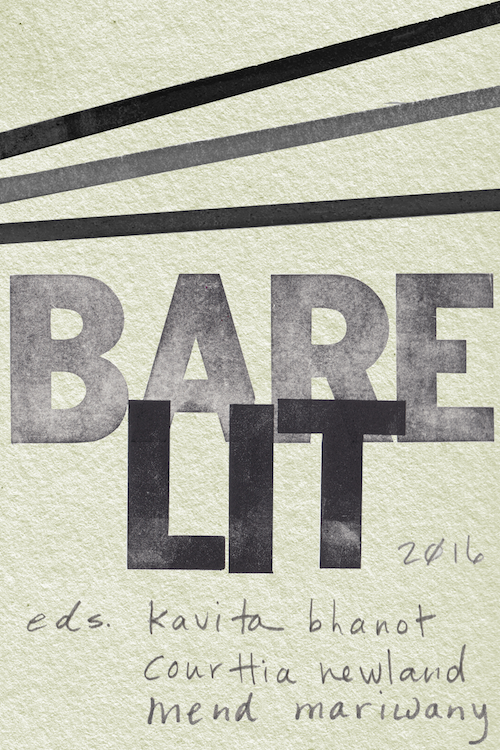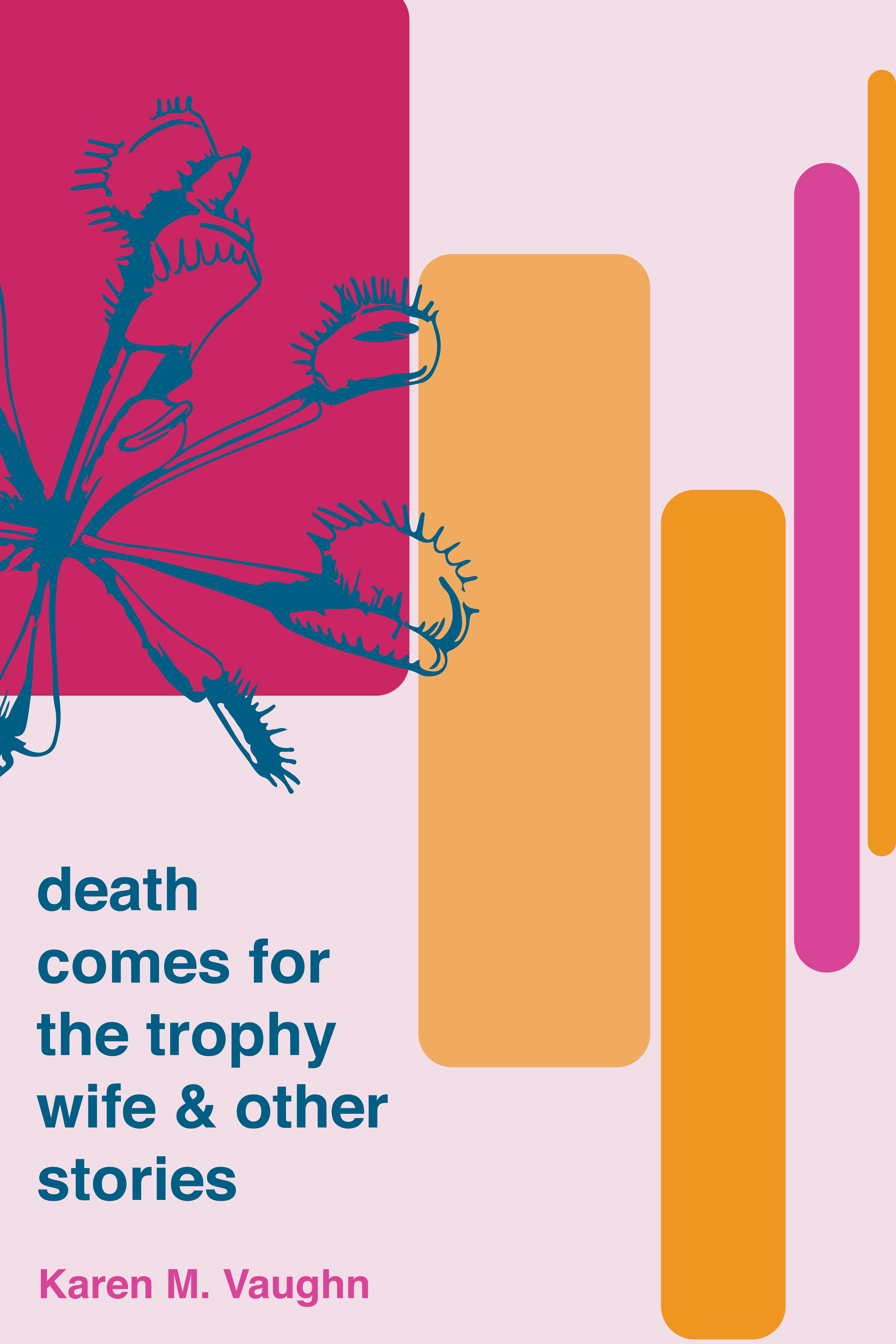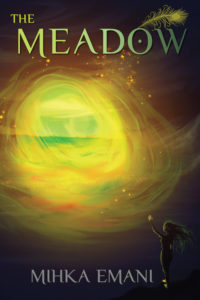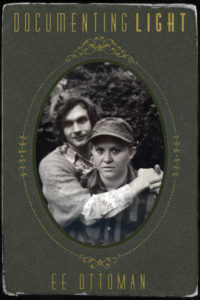
Bare Lit
Edited by Kavita Bhanot, Courttia Newland, Mend Mariwany
Release Date: April 21, 2017
Print ISBN: 978-1-942083-58-0 • EPUB ISBN: 978-1-942083-60-3 • Kindle ISBN: 978-1-942083-59-7 • PDF ISBN: 978-1-942083-61-0
Brain Mill Press offers Bare Lit in ebook and print editions. Ebook buyers receive access to MOBI (Kindle), EPUB, and PDF files, offered without DRM restrictions. Print book buyers receive a physical copy of the book and access to the ebook files in all formats.
A fiction and poetry anthology in support of the Bare Lit Festival, showcasing award-winning British authors of color.
In 2016, a group of UK authors of color founded the Bare Lit Festival: the first ever literary and author festival featuring only UK writers of color. Bare Lit collects short stories and poetry by literary luminaries whose work represents the values and mission of the festival. Edited by Kavita Bhanot, editor of Too Asian, Not Asian Enough, Courttia Newland, author of The Gospel According to Cane, and Bare Lit Festival cofounder Mend Mariwany, all proceeds of this anthology go toward direct support of the Bare Lit Festival for authors of color.
ABOUT THE EDITORS

Kavita Bhanot is a writer, editor, teacher, activist based between India and England. Her fiction, nonfiction, and reviews have been published widely in anthologies, magazines, journals, newspapers, and online forums, including Media Diversified, Round Table India, and The Independent. Her short stories have been broadcast on BBC Radio 4. She is editor of the anthology Too Asian, Not Asian Enough (Tindal Street Press 2011) and the forthcoming Book of Birmingham (Comma Press, 2017). She has a PhD from Manchester University in Creative Writing and Literature, has taught at Manchester University and Fordham University, and is a reader and mentor with The Literary Consultancy.

Courttia Newland is the author of seven works of fiction including his debut, The Scholar. His latest novel, The Gospel According to Cane, was published in 2013 and has been optioned by Cowboy Films. He was nominated for the Impac Dublin Literary Award and the Frank O’Connor Award, the CWA Dagger in the Library Award, the Hurston/Wright Legacy Award, and the Theatre 503 Award for playwriting, as well as numerous others. His short stories have appeared in many anthologies and been broadcast on BBC Radio 4. In 2016, he was awarded the Taner Baybars Award for science fiction writing and the Roland Rees Bursary for playwriting. He is associate lecturer in creative writing at the University of Westminster and is completing a PhD in creative writing.

Mend Mariwany is a writer, editor, and cultural curator with an MA in Postcolonial Theory from Goldsmiths, University of London. He was born in Iraq and was raised in Germany before moving to the UK, where he cofounded Bare Lit Festival in 2016. Mend has organised arts events and storytelling performances and worked with a range of magazines, including Muftah, Media Diversified, and Skin Deep. He is currently based in London where he is working on his debut collection of poetry and prose.
CONTENTS
Foreword by Mend Mariwany
Introduction by Kavita Bhanot and Courttia Newland
Postscript from the Black Atlantic by Koye Oyedeji
(poem) by Selina Nwulu
(poem) by Selina Nwulu
Till All That’s Left Is White Space by Selina Nwulu
Blue Cornflowers by Salena Godden
Kali by Kajal Odedra
Shitluck by Martin De Mello
Two Days and Two Nights in Kisumu by Raymond Antrobus
A Year From Home by Hibaq Osman
Trading Air by Hibaq Osman
Banjo on the Motorway by Tendai Huchu
Gannet by Vera Chok
The Nod by Jennifer Nansubuga Makumbi
Trash by Selma Dabbagh
Aya by Sharmila Chauhan
College Degree in Tourism and Service by Tiphanie Yanique
Possession by Stephanie Victoire
Mother by Yomi Sode
Night Terrors by Yomi Sode
Wọ́n Ti Dé by Yomi Sode
Roots by Divya Ghelani
Samo as Everybody Else by Irfan Master
About the Editors
About the Authors
AN EXCERPT from Bare Lit: by Kavita Bhanot
© The Bare Lit Festival, 2017; “Postscript from the Black Atlantic” © Koye Oyedeji, 2017.
Foreword
by Mend Mariwany, cofounder of the Bare Lit Festival
Literature by writers of colour published in the UK remains overburdened by a bulk of constraints. Often it fixes complicated narratives to personal struggles, consigning them to domains of the confessionnal, inner moral clashes, and the impossibly tragic.
The inauguration of the Bare Lit Festival in February 2016 marked a significant turning point. Rather than centring writers’ work around prescriptive themes, the festival looked to open possibilities beyond them. Through readings, conversations, panels, and performances, we were adamant to overcome the anachronism that exists between the vast spectrum of work produced by writers of colour and the kind of exposure they receive. With the generous help of our audiences and supporters, Bare Lit was able to honour their work both artistically and financially.
The accompanying anthology builds upon this achievement. Calling on participants and writers of colour UK-wide, we asked contributors to submit their writing in line with the aims and ethos of Bare Lit. The response was overwhelming—thank you to everyone who contributed.
We received over a hundred submissions of prose and poetry covering an impressive range. Writers took us on flights of fancy, pandering to multiple worlds while engaging us in their literary imaginations. Every submission was carefully discussed and considered on the premise of originality, relevance, and often a certain kind of gut feeling.
The selection presented here brings together original, previously unpublished works of contemporary prose and poetry by established as well as lesser known writers, giving both the opportunity to work with this volume’s brilliant editors, Kavita Bhanot and Courttia Newland, who have honed each piece to its utmost and without whom the anthology would not have been possible. The final pieces cover an unimaginably vast scope, reflecting the wide, and at times irreconcilable and contradictory, range of themes and the political élan present in the work of writers of colour in this particular period. In this sense, they are not canonical but anticanonical, and vested in the many global and diasporic vernaculars.
The Bare Lit 2016 anthology has captured the animate spirit of our festival, which for so many of our writers and readers has signalled a growing and unwavering confidence amongst writers of colour in the British literary landscape. It builds upon a long-lasting and important tradition of defiant literary collectives and volumes by British Caribbean, African, and Asian diaspora writers who have worked so diligently to carve out spaces for conversations.
Putting together this volume, however, was a question of balancing texts, choosing between those evoking a political consciousness and those driven by a desire to explore themes and styles in their own, perhaps more unassuming, way. Making selections for an anthology is never easy, and no collection is ever exhaustive or complete. As editors and publishers we understand how politicised the role of selection, of representing the right kinds of texts, is. Through commitment and continual discussions we agreed to include a wide-as-possible spectrum in equal measures and offer a nuanced view of what is present and what needs to be more present.
Whether intentional or accidental, the stories and poetry are unsettling to the white literary establishment—not because they dismantle but because their sheer scope undermines the monolithic imagery surrounding writers of colour. Their variety reminds us of the possible and potential variables that exist in our prismatic lives. It’s for that reason that our choices do not reflect only the quality of works submitted to us, but also our own political intentions and ambitions as editors. By choosing some work over others we wanted to avoid oversaturating the literary landscape with texts of a certain kind.
And so the selection presented compiles a handful of texts by participating writers from our festival in 2016 and complements them with texts from writers who weren’t present but responded to our call for submissions. We have featured some of the most promising texts. They pander to the historical over the allegorical, to more personal meditations, and span a plethora of literary styles and genres. While some explore the intersections of identity, race, gender, and class, others are textured by introspective voyages. Some are unprecedented in the themes they address; others offer sharp takes on more familiar ones. In fact, the narratives escape our impulse to assume any real categorization.
The pieces we’ve put together take us from the Caribbean over India and London to fictitious, perhaps visionary, places, but most importantly they remind us that writers of colour are not tied to the inscriptions of the publishing industry. In spite of the challenges faced, they can free themselves of the constraints placed upon them if they have the space to do so. With this anthology we hope to offer our own contribution and pay homage to such efforts.
We are extremely proud to present this exciting collection. And while this is the first Bare Lit anthology, we look forward to contributing to and collaborating with existing and emerging platforms in the future.
Mend Mariwany
Co-Founder of Bare Lit
Introduction
by Kavita Bhanot and Courttia Newland
We have seen, post Brexit and Donald Trump’s election, a fresh turn towards literature—as if, in these ‘barbaric’ times, the ‘civilised’ sphere of literature offers some sanity, that it might save us. But is it true that literature, in itself, offers an alternative to the racism and white supremacy that manifests so clearly today? Does literature, in its essence, challenge the idea of the ‘other’? Or has literature always played a part in the ‘othering’ that is at the heart of such racism and supremacy—perhaps all the more dangerous as it is not seen or recognized, partly due to the pervasive belief that reading and writing literature makes us better people?
From the work of Edward Said to Toni Morrison to Ngugi Wa thiong’o, from Chinua Achebe’s critique of Conrad’s Heart of Darkness to Hamid Debashi’s Brown Skin White Masks, it has been made clear that literature perpetuates and normalizes racist stereotypes, prejudice. So why does this mythologizing of literature persist? Why are we so reluctant to take ‘literature’ off its pedestal, to face up to the fact that literature can be and has been a site for normalized oppressions and supremacies, including whiteness? That literature is political. It does not—as Lionel Shriver seemed to assume in her recent speech at Brisbane Writers Festival critiquing ‘political correctness’ and calling for the writer’s right to freedom of expression—occupy a sacred sphere, separate from the world. And we don’t, writing into this abstract space, write simply for ourselves or for no-one in particular, as so many writers continue to insist. Rather, much of the English language literature that we read and write tends, consciously or unconsciously, to be directed towards white readers as the invisible, dominant, normative perspective.
The shared understanding that literature is entangled in the world, not separate and superior from it—that literature always faces in a specific direction—has been our starting point in putting together this collection, the first of an annual series published by Media Diversified, the Bare Lit Festival, and Brain Mill Press. It has been an honour for us to have been invited to edit this anthology. It has been a relief, in the process of putting it together, not to have to hide or suppress our understanding of literature as political. It has felt like the lifting of a common yet unspoken censorship, to have conversations around what we would like to include in the anthology that are not simply based on ‘merit’—on some narrowly defined but apparently universal ideas of craft, of ‘good’ literature—but to consider also the ways in which a piece represents, who it is directed towards, the risks it takes, the emotion and honesty behind it (recognizing the politics of both).
We have been surprised and delighted by so many of our submissions, and are proud of what this anthology brings together. At the heart of this project has been an effort to address directly the suppression of the voice of the writer of colour in mainstream literature—a silencing that is rarely addressed via essays, articles, or novels and stories, even today. Few writers of colour have dared to tackle the very real ways in which literature can become something of a performance, where the frameworks of how we should write are often fixed, defined outside of ourselves, with very little room for maneuver. Hardly any emphasis is placed on the monocultural nature of published literature, save the odd periodic report such as Writing the Future; thus, we are offered few creative examples of how to extend ourselves beyond the parameters of what we already see. Instead, the blame is laid at the feet of the writers; we’re routinely told that we don’t make enough money, or we’re not writing well enough. This is not the case. Working with writers as we do, in universities, via literary consultancies, as editors and award judges, we’re privy to a great deal of writing that often doesn’t make it to the shelves. Our literature is as rich, broadly defined, and imaginative as any other. It’s the assumptions of an industry that deems the marketplace less sophisticated than it actually is that holds writers back.
As we see in this collection, writers are doing the necessary work. Away from the demands of marketing departments, they sit at their desks experimenting with language and form. They engage with the politics of the moment and the spirit of their emotions, in an attempt to gain a greater understanding of who we are. They wrestle with their chosen art, be it fiction, or poetry or theatre, or film, and they make the work they wish to see. It’s an enormously brave and often unrewarding act.
As editors, we wanted to make a space that allowed the existence of such work, and by doing so, allowed the existence of us. In our call out, we encouraged writers of colour to send in work that challenged the inherited frameworks into which we are supposed to fit ourselves and our writing, work that dared to venture into the unsaid and unexplored, work that they thought they would have difficulty getting published elsewhere. In some way, all the pieces in this anthology—poems, short stories, and the pieces that fit neither category—transcend these boundaries of what we are supposed to write, of what is acceptable, palatable, marketable.
At the same time, we don’t make any claims for this anthology as groundbreaking—it is an important step in the direction that we need to go, part of a necessary process in which we create safe, nurturing, mutually supportive spaces for our art, for seeing and exploring realities, experiences, imaginative journeys that the structures around us actively prevent us from seeing and exploring. We hope that Bare Lit Festival, along with this first Bare Lit anthology, represent the beginning of this process.
Postscript from the Black Atlantic
by Koye Oyedeji
- IT DIDN’T SEEM TO MATTER THAT THE FIRST GIRL WENT MISSING WHILE HE WAS STILL AT SEA.
It was going to take two weeks for the ocean liner to reach the United Kingdom, but Lawal hoped that the journey—the time between worlds—would help bridge the divide between homeland and sanctuary, shame and prosperity. He was young, but there was already much to put behind him and so, by day, as the ship sailed aside the coast of west Africa, he let his optimism ride along, surfing the slate-grey waves his ancestors once worshipped. But even the ancestors can grow impatient, and, once the liner crossed into European waters, the waves began to blacken at night and throw their strength at the ship’s hull. When this did no good (or bad), the ancestors grew enraged, and they began to tell of the way in which this young man and his family name had insulted the rivers and forgotten that it was the mother of the ocean who had given them their blessings. They sent the waves a little something to help them along, unwrapping a curse as thick as the fog that would descend on the maritime mornings. Lawal was none the wiser though, wrapped up in things unseen—his travels and his ambition, a sense of spirit that stirred within and flooded his arteries with the promise of something; a tingle that felt like fortune, an air that trapped his lungs with the swallow of success.
But he spent a lot of time on the deck; perhaps too long, because it was as if the wind began to carry his confidence away. He had enough time alone now, alone with his thoughts for the first time in weeks. He recalled the ways in which he tried to conceal the house girl’s stomach and, when he knew he no longer could, the way his father had looked at him when he told him the news. His father had beat him, but then immediately called for the house girl and beat her even harder. He recalled how she remained silent through it all, and how her silence just angered his father even more. And he believed that it was the silence that was beginning to haunt him now. After a week of rough weather, storms, and fierce winds, he stopped going onto the deck altogether, returning only when the isles came into view, when the rush and adrenaline of the other passengers swept him up top. Seeing the smog of Liverpool on the horizon, he fancied himself as some sort of cosmic revisionist, using the present moment—and all the sense of accomplishment it brought—to disabuse himself of any past wrongs. He had sacrificed the comfort of home. But he could be a part of this alien community; fresh produce in the Mother country—a land both strange and familiar. He’d made it to England in one piece despite it feeling for a time as though God had personally sent them the worst of his weather. And now that he had arrived, Lawal believed he would move past the detritus that his lust and longing had left in their wake. He was going to make his father proud; he was going to seal the fissures he had created and discard the past as though it were merely old clothes.
But the ancestors were talking. And he was talking over them with all of these thoughts—thought after thought after thought. If he had stopped for silence, he might’ve heard something rippling, his evil catching up with him, slow crawling across the ocean beneath him.
- HE THOUGHT THAT THEY WOULD COME TO LOVE HIM IN TIME…
…But Liverpool was no good to him. He was never allowed to settle. Never allowed to feel as if he might belong. He spent a year there before he left for London, where he was able to find a decaying slice of low-rent council housing—a flat on a block that was barely holding court on a crumbling estate. London was no better for him, but he thought the city might give him what Liverpool could not, that opportunity loomed in the shadows of its tall buildings, beneath the bellows of the market traders and in the churning inflections of the lecturers at the Polytechnic he attended. Two years of nothing passed, and until success came out from behind its rock, he had to content himself with thoughts of home and the thought of what had become home. Piss stains crawled down the stairwells in his building and the walls were spray painted with British National Party slogans, calling cards that demanded, “WOGS GO HOME.”
Still, despite all the fetor, there was a different stink in the air. Lucy Smalls, a quiet nine-year-old brunette, had not been seen in over a month. She was the youngest of three girls, raised by the single mother who lived on the east side of Lawal’s building, in flat 38. Natasha Ifill, who had lived with her family just a few doors away from him, had been close to Lucy’s age when, two years ago, she had also disappeared. And just as in the case of Natasha, the pieces of sticky tape that held the missing posters to the buildings’ walls would come away in time, and the posters would begin to tell a different story, to peel, tear, and flap with the wind. No one in the community made it their task to repair or replace Natasha’s posters; they waited instead and, flush with the guilt of still being able to hug their own children, they relied on the elements to discard their fears.
This piece of south London, with all the police presence, the unease and the anxiety, was Lawal’s home and would remain so until, in some fashion, he was able to make a distant father proud. The months tumbled one after another in a place like that; long-term plans easily unraveled.
Snap your fingers. He was now a grown man. His twenties behind him, but still no better for wear. Still living between strangers. Still the city continued to greet him with forced smiles and spurious expressions of welcome. London was impatient with his English and his pronunciations, unsympathetic when it came to late rent. Each day he rediscovered the shade of his skin. He grew accustomed to the words that were frequently spun in his direction. A familiar crop of slurs—Nigger. Golliwog. Sambo. He would ignore the insults until he got home, where, once sat at the kitchen table, his head in his hands, he would peel the words apart and try to reassemble them with his own understanding. The cold UK air was potent, and the winters were unforgiving. Who could have told him that the frequent rain would be able to wash the colour from his ambition, or that January’s snow could cause his confidence to ebb away?
So it was quite causal, then, that during one of those brutal winters, he found God waiting for him, in the form of a south London Pentecostal church that was giving away free food with season’s greetings.
- GOD MAY OR MAY NOT HAVE BEEN BY HIS SIDE.
He was rummaging in his pocket for his keys when the four men encountered him. They were like clones, impulsive and united by their fear of invasion. Their heads were shaved and they dressed alike in bomber jackets, their fatigue trousers tucked into the top of their Doc Marten boots. Their danger was in their number. Because if they were not four, then they might not have taken him by each appendage, and the violence—the idea of picking him up and tossing him over the balcony—might not have come so easy to them.
Lawal fell three floors from the block of flats just as something unseen quickened itself and chased his descent. He hit the pathway outside the garages and lay on the spalled concrete until he was able to comprehend his consciousness. He still lived. He barely caught his breath before he realized his fortune. There wasn’t even any blood to speak of. A miracle? he thought, before he climbed to his feet and winced at the pain in his back and the sudden headache that rang between his ears, the early murmurs of a dull throb that would never subside, welcoming in a pain he was going to spend the rest of his long life trying to shake loose. He shuffled back towards the building then, unsteadied, still trying to gather the world beneath his feet. But later, when his shock set him free, and the fear set in that with so many different Gods in the world he might snub whatever higher being had come to his aid, he heard the first two of what would be many voices. Two voices in his head. Two girls that screamed and pleaded with him to stop.
- IT WAS GOING TO BE A BURDEN TOO MUCH TO BEAR.
And then those two young girls disappeared. He’d read it in the paper as Jide, one of his few friends from the Pentecostal church, fussed over him, bent on reminding him that their God was a jealous God and that he needed to stop all this recent talk of embracing all faiths, of Ifa and Islam, Hinduism and Buddhism. At church, Lawal had a growing reputation as he began to insist that they evenly spread their praise amongst the gods, to not forget the names of Allah and Brahman and Oludumare in their whispers. Members of the congregation had begun to share their concerns with Jide. They found Lawal’s words inappropriate, and it was distasteful of him to attend each service in the same pair of dirty jeans. Talk amongst the church members grew. Brother Lawal was practicing juju, he was bringing evil spirits into their house of God. The pastor spoke to Lawal a handful of times, but when it grew clear that his message had fallen on deaf ears Lawal was asked not to return. He quit his graduate studies soon after this and lost the job he held as a night watchman at a paper factory. The voices he heard made it difficult for him to work or study and, fearing another attack, he rarely ever went outside, leaving the flat only to visit the post office to cash his unemployment benefit or to the market to buy gari and yams. The rent arrears piled up. Jide stopped visiting. Lawal would talk, instead, to strangers because he found that when he talked the voices dimmed a little. But it didn’t take much of this before people started to cross the street whenever they encountered him. That’s how he began to talk to the kids. Because the kids were yet to form judgments and prejudices—the only people innocent enough to give him their time.
- THEY WERE VOICES CLOTHED IN GLOOM.
Snap your fingers again and, just like that, two, six, eight voices were now in their hundreds. Conversation was his only palliative; he was only able to speak over the voices when he had someone to speak to. It was as though he’d taken up the task of carrying the souls of the locals, and it was better for him to talk than to cave beneath the weight of their thoughts.
And so he talked.
His willingness to talk to anyone, to strangers and to the children, meant he earned some local names. Nothing very clever. The Nigerian. The Voodoo Man. The Nigerian Voodoo Man. The Witchdoctor. He ignored the jeers and once managed to just avoid the brick a teenager hurled at him. But when the skinheads chased him a second time he decided that being social was not for him. He shut the world out. More importantly, perhaps, he shut his landlord out. He scrawled stuff about his home, transcriptions of the quickened voices that whispered beneath his every act. It helped, not as much as talking did, but it numbed him somewhat. On his refrigerator, in black permanent marker, he put down everything he heard, like the thoughts of the A-Level student who was sure she knew better than her teacher, and the skinhead boy who didn’t share the same views his friends had on Jews and blacks but envied how having a collective voice came so easy to them. He heard the agony of the longtime married woman, a long time untouched. He heard the anxious father infuriated by his son’s shrug.
Soon, everywhere he looked in his home, he saw sentence after sentence, written wherever there was a clean surface to be found—on plug sockets, on tables, on the skirting, all over the bath. From his perch on the windowsill, he looked out amongst the flats, he saw us—you, me—for what we really were, lead actors in our stories, marked by our inability to shed our sense of significance. But it was those close to him, his neighbours—his community—whose thoughts seeped in with the most intensity. He heard the bigotry, the addiction to alcohol, the protectiveness, the settling for second best, the lust, the trepidation to look at your own body in the mirror and, within it all, he heard the thoughts of that man—the driven, impulsive man who lingered with the young girls—as well as the torment of those who had lost a daughter, granddaughter, and sister to this man. Lawal thought the voices were all so violent; it seemed as if violence was everywhere, and the more he heard it, the more it sickened him, suffocating the optimism he’d stockpiled during his earlier years in the country.
He had been prepared. He knew that like any good religion his faith would waver, that it would dull and that he would be desensitized to its effects, just like the lingering pain in his head. And he realized there was no chasing the past, and the future was unattainable. The ambition he had in the seventies had given way to the resignation the eighties brought, and there was only the now, and the time to make peace with something—some being that had chased him across the waters. For the first time in a long time, he thought of the bastard child, born out of wedlock, who his father had hurried him away from. The child would be a teenager now, away from the big city of Lagos, living in whatever village her mother’s family was from. And for the first time ever, he thought of the child’s mother, the untrained and unkempt fourteen-year-old house girl they had taken on. And he confessed aloud, for the first time, that she was not for him to use as his own. She was not another item of furniture in their large home. He confessed aloud, for the first time, that she was no seductress; that he had dragged her to the Boys’ Quarters where he raped her, and that he had done so several times.
And an affirmation came with the confession—that the past’s denials and the haunting thoughts of the present had something in common: they were voices clothed in gloom.
- WHEN THEY FOUND HIM, THEY FOUND THEIR ASSURANCE…
…But not before the eight-year-old Pakistani girl, Fatima Bachani, went missing. Her parents didn’t understand English. But no vernacular would help them understand what had happened. They were inconsolable. Lost to the world as much as their child was. Lawal could’ve been right there with Fatima when she was lifted off the monkey bars in the play area. He’d felt her uncertainty, her confusion, and later her fear. His faith completely withered after that, the voices grew in volume, and he grew as accustomed to living with them as he did with the headache. He would hear voices over and over wherever he went. There were so many voices now that they talked over one another, and he could no longer make out what was being said. The din became just another soundtrack to his life, just a portion of the gloom he felt. There was nothing to do then but to consider the voices as both a warning for others and punishment to him. He force-fed himself some faith and decided that fasting might help—a marathon fast of Jesus-like proportions. He would fast for forty days for the lives of others and for his own salvation—or he would die trying. And so he stopped eating, stopped collecting his unemployment benefit, and would never have left his home again under his own volition.
Being a tenant in an illegally sublet home bought him time; not even his landlord was able to act without alerting the council. But his life, as with all lives, was a blur that brushes the blur of others, and the authorities broke in on the seventh day, after the water he left slowly running in the bathroom sink overflowed to a point where it began to drip into the flat below. In the unkempt and now flooded home, they found him in the barely furnished bedroom. Karma had done a number on him. He was lying on a mattress, naked and emaciated, whispering prayers as he lay in his waste, his urine, and his faeces—selflessly praying for all of us amongst all that mess…
On the wall above him there was a postscript from the Black Atlantic; barely legible and written in excrement stood the words: I raped her.
It was the one sentence he felt he could hold on to through the orchestra of noise, and he muttered this over and over again as one police officer retched and another radioed for an ambulance.
- NO ONE CAN EXONERATE THE FORGOTTEN.
He would bounce from one institution to another.
The detective inspector working the investigation closed the book on the case of the missing girls.
And it was never opened again.
Not even when, weeks later, Greta’s daughter disappeared.
Instead, a new chapter was written.
EXTRAS
- “Bare Lit To Publish Anthology,” by Katherine Cowdrey, The Bookseller, June 7, 2016
- Schedule for the 2017 Bare Lit Festival
- Asian Culture Vulture reports on the 2017 festival and anthology launch
- An excellent piece on the significance of the Bare Lit Festival by Leveller






 EE Ottoman grew up surrounded by the farmlands and forests of Upstate New York. They started writing as soon as they learned how and have yet to stop. Ottoman attended Earlham College and graduated with a degree in history before going on to receive a graduate degree in history as well. These days they divide their time between history, writing, and book preservation.
EE Ottoman grew up surrounded by the farmlands and forests of Upstate New York. They started writing as soon as they learned how and have yet to stop. Ottoman attended Earlham College and graduated with a degree in history before going on to receive a graduate degree in history as well. These days they divide their time between history, writing, and book preservation.
